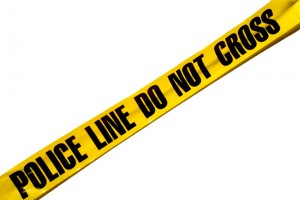Some places are in need. Some places are in real need. Some places are in crises like we only see in war. The Englewood neighborhood of Chicago is one of these.
The recent series on Harper High School in Englewood that last month aired on This American Life, NPR Morning Edition and WEBZ radio is a blockbuster. Anyone interested in violence, urban America, schools, or guns needs to listen.
Since I first heard it, I have been debating whether to post one of my more viscera l reactions. As part of the series, Alex Kotlowitz hung out in the social work office at Harper High, where social workers faced the effects of violence every day. One youth profiled in the series accidently shot his younger brother while they played with a found gun. He seeks refuge in the social work office and develops a touching relationship with a caring young social worker.
l reactions. As part of the series, Alex Kotlowitz hung out in the social work office at Harper High, where social workers faced the effects of violence every day. One youth profiled in the series accidently shot his younger brother while they played with a found gun. He seeks refuge in the social work office and develops a touching relationship with a caring young social worker.
And it struck me all wrong.
Quality social work requires two main ingredients: technical proficient care, sensitively delivered. The young man in this piece forged a strong relationship with his social worker. She was delivering care with interpersonal sensitivity. But where was the technical proficiency? The young man had shot his brother in the prior school year. But he didn't receive counseling, let alone the high quality trauma treatment he desperately needed. Six weeks into the new school year, his social worker is still talking about trauma treatment, not providing it. She hints to him that he only has a year left at Harper and someday he is going to have to talk about his issues. "You know," she whispers to him, "about your brother."
I hesitate to question the social work provided by anyone, let alone social work provided by a woman with a job 20 times more difficult than my own, and let alone a social worker that opened herself up to public scrutiny by letting herself be recorded for a school year.
But where Alex Kotlowitz saw heroic outreach to violence tattered kids, I saw technical incompetence.
1) I live and work in Chicago. High quality trauma treatment is available in Chicago. La Rabida Children's Hospital is a world class trauma treatment mental health provider on Chicago's south side, not too far from Englewood. Why wasn't this kid getting the right services? He had a social worker in his life whose job was to get him to that service. I know access is often an issue, but this is a kid who shot and killed his brother. Therapy services are available, therapy services that work with traumatized kids. Several Chicago Public Schools run an evidence-based group trauma treatment called CBITS. Why wasn't CBITS in what may be the most violence ravaged high school in the country?
2) The social worker kept acting like the trauma treatment was up to the kid, like she was waiting for a signal that he was ready. He was ready! He came by your office several times a day. He was ready!
3) Months later, the social workers in the office kept referring to "the incident" and "thing that happened" with his brother, often in whispered tone. He shot and killed his brother. That is what happened. Who here wasn't ready to talk about it out loud? The social workers.
It is painful to see social services fail their clients. It is more painful when the client is a child in need of a service that is available. It is painful when the social service looks great to the uninformed, but is not working. It is painful for me as a social worker to see my profession once again portrayed as a caring profession, but without the ability to deliver the goods.
